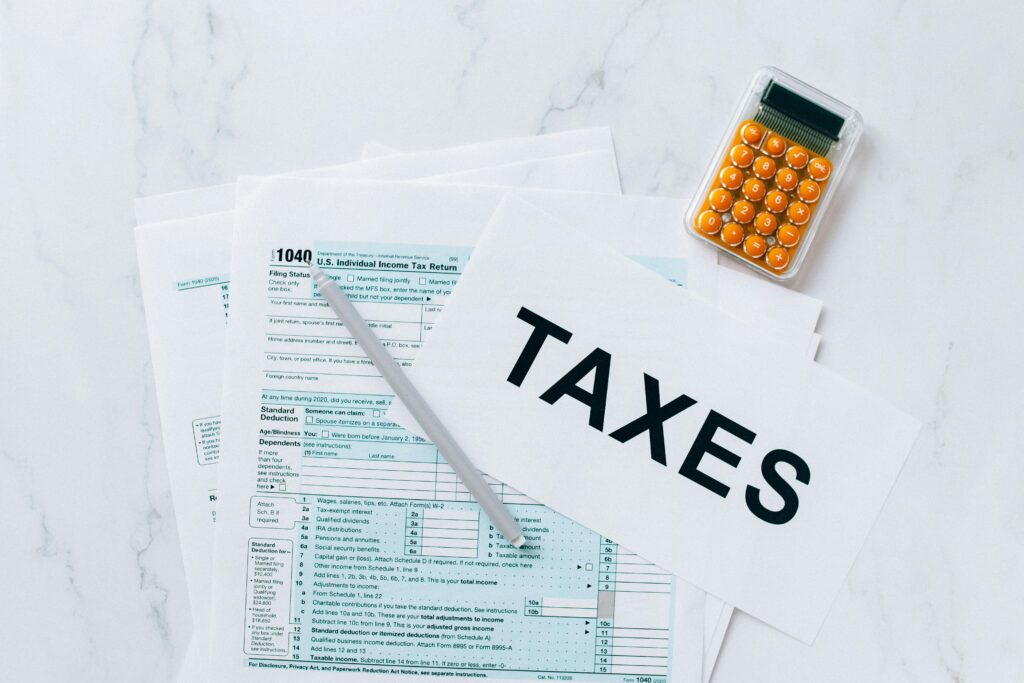Personal Finance and Budget Management
Part 1: The Core Keyword Categories (The “What”)

Category 1: Foundational Budgeting & Methodologies
- 1.1. Core Concepts: personal finance, money management, financial planning, budget management, how to budget, creating a budget, sticking to a budget, budget basics, household budget, family budget, couples budget, personal budget, monthly budget, weekly budget, annual budget, financial discipline, financial literacy, importance of budgeting, benefits of budgeting, personal finance 101.
- 1.2. Budgeting Methods: zero-based budgeting, 50/30/20 rule, envelope system, cash stuffing, pay yourself first, reverse budgeting, Kakeibo, percentage budgeting, values-based budgeting, bare-bones budget, anti-budget, 70/20/10 budget, 80/20 budget, one-number budget, digital envelope system, half-payment budget method.
- 1.3. Budgeting Components: tracking expenses, cutting expenses, reducing spending, stopping paycheck to paycheck living, setting financial goals, short-term goals, mid-term goals, long-term goals, spending analysis, expense categories, fixed expenses, variable expenses, discretionary spending, non-discretionary spending, sinking funds, creating sinking funds, sinking fund categories (car maintenance, vacation, gifts), emergency fund vs sinking fund.
Category 2: Tools, Software & Resources

- 2.1. Apps & Software: budgeting app, personal finance app, expense tracker app, YNAB (You Need A Budget), Mint, Rocket Money (Truebill), Empower Personal Dashboard (Personal Capital), EveryDollar, Tiller Money, Monarch Money, Copilot Money, Goodbudget, Simplifi by Quicken, PocketGuard.
- 2.2. Reviews & Comparisons: [App Name] review, [App Name] vs [App Name] (e.g., YNAB vs Mint), best budgeting apps, free budgeting apps, best expense trackers, Mint alternatives, YNAB alternatives, Empower alternatives.
- 2.3. Spreadsheets & Templates: budget spreadsheet, budget template, Excel budget template, Google Sheets budget template, printable budget planner, monthly budget worksheet, family budget planner, debt payoff tracker spreadsheet, net worth tracker template, investment tracking spreadsheet, free budget printables.
Category 3: Debt Management & Elimination

- 3.1. General Concepts: get out of debt, debt-free, debt-free journey, how to pay off debt, debt management plan, debt consolidation, debt settlement, debt relief, good debt vs bad debt, debt-to-income ratio (DTI), how to calculate DTI, what is a good DTI, debt cycle, debt stress.
- 3.2. Repayment Strategies: debt snowball, debt avalanche, debt snowball vs avalanche, debt snowflake method, debt tsunami method, paying more than the minimum.
- 3.3. Specific Debt Types: credit card debt, how to pay off credit cards, student loan debt, student loan forgiveness, student loan repayment plans (SAVE, PAYE, IBR), private student loans, personal loan debt, car loan, how to pay off your car loan early, mortgage, how to pay off mortgage faster, medical debt, how to negotiate medical bills, Buy Now Pay Later (BNPL) debt, Klarna debt, Afterpay debt, payday loan debt, HELOC (Home Equity Line of Loan).
- 3.4. Tools & Services: debt consolidation loan, balance transfer credit card, best balance transfer cards, credit counseling, National Foundation for Credit Counseling (NFCC), debt settlement companies, bankruptcy (Chapter 7, Chapter 13).
Category 4: Saving & Emergency Preparedness

- 4.1. Saving Strategies: how to save money, creative ways to save money, money saving tips, saving challenges (52-week challenge, 100 envelope challenge, no spend challenge), automate savings, micro-saving, setting savings goals, savings rate, how to increase savings rate.
- 4.2. Savings Vehicles: savings account, high-yield savings account (HYSA), best HYSA rates, online savings account, Certificate of Deposit (CD), CD ladder, money market account, HYSA vs CD vs Money Market, where to park cash.
- 4.3. Emergency Fund: emergency fund, building an emergency fund, how much for an emergency fund, 3-6 months expenses, how to build an emergency fund fast, where to keep an emergency fund, what constitutes an emergency, using your emergency fund.
Category 5: Income Generation & Career Growth

- 5.1. Increasing Income: how to make more money, side hustles, best side hustles, high-paying side hustles, online side hustles, passive income ideas, active income streams, multiple income streams.
- 5.2. List of Side Hustles (each is a keyword): freelancing, freelance writing, graphic design, web development, virtual assistant, social media manager, DoorDash, Uber, Instacart, dropshipping, affiliate marketing, blogging, YouTube channel, podcasting, selling on Etsy, Amazon FBA, real estate photography, pet sitting, house sitting, tutoring, online surveys, transcription, flipping furniture, renting out a room (Airbnb).
- 5.3. Career & Salary: how to ask for a raise, salary negotiation tips, negotiating a job offer, high-income skills, career change, upskilling, professional certifications.
- 5.4. Irregular Income: budgeting on a variable income, budgeting for freelancers, managing commission-based pay, profit planning for small business, saving for taxes as a freelancer.
Category 6: Investing & Wealth Building

- 6.1. Beginner Investing: how to start investing, investing for beginners, investing with little money, stock market for beginners, what to invest in, compound interest, power of compound interest, compound interest calculator, dollar-cost averaging, lump sum investing, risk tolerance, what is my risk tolerance.
- 6.2. Investment Accounts: brokerage account, Roth IRA, Traditional IRA, 401(k), 403(b), TSP (Thrift Savings Plan), SEP IRA, SIMPLE IRA, Solo 401(k), HSA (Health Savings Account), 529 plan, UTMA/UGMA account, taxable vs tax-advantaged accounts, Roth IRA vs Traditional IRA, 401(k) rollover, backdoor Roth IRA, mega backdoor Roth IRA, IRA contribution limits.
- 6.3. Asset Classes: stocks, bonds, mutual funds, index funds, ETFs (Exchange-Traded Funds), S&P 500 index fund, total stock market index fund, real estate, REITs, cryptocurrency, Bitcoin, Ethereum, commodities, target-date funds, dividend stocks, growth stocks, value stocks.
- 6.4. Strategy & Portfolio Management: investment portfolio, asset allocation, diversification, portfolio rebalancing, long-term investing, short-term investing, bear market strategy, what to do in a recession, market correction, financial independence, FIRE movement (Financial Independence Retire Early), Fat FIRE, Lean FIRE, Barista FIRE, Coast FIRE.
- 6.5. Platforms & Brokers: best investment apps, best online brokers, Fidelity, Vanguard, Charles Schwab, M1 Finance, Robinhood, Webull, E*TRADE, robo-advisors, Betterment, Wealthfront, robo-advisor vs financial advisor.
Category 7: Credit Score, Reports & History

- 7.1. Understanding Credit: what is a credit score, FICO score, VantageScore, good credit score range, what affects credit score, payment history, credit utilization, length of credit history, credit mix, new credit, credit report, free credit report, AnnualCreditReport.com, Experian, Equifax, TransUnion.
- 7.2. Building & Improving Credit: how to build credit, how to improve credit score fast, how to fix bad credit, credit repair, secured credit card, credit builder loan, authorized user, how to lower credit utilization, disputing credit report errors, hard inquiry vs soft inquiry, how to remove hard inquiries, credit score needed for mortgage.
Category 8: Retirement & Long-Term Planning

- 8.1. Retirement Planning: retirement planning, how much to retire, retirement calculator, retirement savings plan, retirement income, when can I retire, FIRE movement calculator, sequence of returns risk.
- 8.2. Retirement Accounts & Vehicles: (see Category 6.2), catch-up contributions, Social Security, when to take Social Security, pension plan, annuities, retirement withdrawal strategies, 4% rule, guardrail strategy.
Category 9: Insurance & Risk Management

- 9.1. Types of Insurance: health insurance, life insurance, term life insurance, whole life insurance, disability insurance (short-term/long-term), auto insurance, homeowners insurance, renters insurance, umbrella insurance, long-term care insurance, pet insurance, identity theft protection.
- 9.2. Health Finance: High-Deductible Health Plan (HDHP), Health Savings Account (HSA), Flexible Spending Account (FSA), HSA vs FSA, maximizing HSA benefits, HSA as a retirement account.
Category 10: Taxes

- 10.1. Core Concepts: filing taxes, tax deductions, tax credits, standard vs itemized deduction, tax brackets, marginal tax rate, capital gains tax (short-term/long-term), tax-advantaged accounts, estimated taxes, tax withholding, W-4 form.
- 10.2. Tax Optimization: how to lower your tax bill, tax loss harvesting, tax gain harvesting, tax efficient investing, tax planning strategies.
- 10.3. Tools & Help: best tax software, TurboTax, H&R Block, FreeTaxUSA, finding a CPA, tax professional.
Category 11: Major Life Events & Family Finance

- 11.1. Relationships: financial planning for couples, combining finances, financial planning for marriage, prenuptial agreement, financial transparency in relationships, financial infidelity, money management for unmarried couples, financial planning for divorce.
- 11.2. Family: financial planning for a baby, cost of raising a child, how to afford a baby, saving for college, 529 plans, teaching kids about money, allowance, chores and money, financial literacy for teens, custodial accounts (UTMA/UGMA).
- 11.3. Home Ownership: saving for a down payment, first-time home buyer guide, mortgage pre-approval, PITI (principal, interest, taxes, insurance), PMI (private mortgage insurance), closing costs, affording a house.
- 11.4. Estate Planning: estate planning, creating a will, living trust, power of attorney, healthcare directive, inheritance planning, generational wealth, how to leave a legacy.
Category 12: Financial Mindset & Education

- 12.1. Psychology of Money: money mindset, abundance mindset, scarcity mindset, financial anxiety, overcoming fear of investing, behavioral finance, emotional spending, financial therapy.
- 12.2. Education: best personal finance books (Rich Dad Poor Dad, The Simple Path to Wealth, I Will Teach You To Be Rich), best personal finance podcasts, best finance YouTubers, financial literacy courses, how to become financially independent.
Part 2: The Modifiers (The “How, Who, Where, When”)
Combine any Core Keyword from Part 1 with one or more modifiers from Part 2.
A. Demographic Modifiers (Who):
- for beginners
- for millennials
- for Gen Z
- for students
- for couples
- for families
- for single parents
- for women
- for men
- for retirees
- for seniors
- for teenagers
- for doctors / lawyers / high earners
- for freelancers / self-employed
- for small business owners
- for military members
- in your 20s / 30s / 40s / 50s / 60s
B. Situational Modifiers (What circumstance):
- on a low income
- on minimum wage
- on a high income
- with irregular income
- with bad credit
- with no credit
- with student loans
- while in college
- after divorce
- after job loss
- with a new baby
- when buying a house
- step-by-step
- DIY
- on a tight budget
- to become a millionaire
C. Intent / Format Modifiers (What format):
- template
- spreadsheet
- worksheet
- checklist
- guide
- course
- app
- software
- calculator
- tips
- hacks
- rules
- steps
- examples
- podcast
- book
- review
- alternatives
- comparison / vs
D. Temporal Modifiers (When):
- 2024 / 2025 / [Current Year]
- this month
- this year
- daily
- weekly
- monthly
- quarterly
- annually
E. Geographic Modifiers (Where):
- in USA
- in Canada
- in UK
- in Australia
- in India
- in Europe
- in [Your State] (e.g., in California, in Texas)
- in [Your City] (e.g., in NYC, in London)
Example Keyword Generation:
- Core: how to start investing
- how to start investing **for beginners**
- how to start investing **in your 20s**
- how to start investing **with little money in Canada**
- best **app** for investing **for beginners 2024**
- Core: zero-based budgeting
- zero-based budgeting **template**
- zero-based budgeting **for couples with irregular income**
- zero-based budgeting **app for android**
- **how to do** zero-based budgeting **step-by-step**
- Core: how to pay off credit card debt
- how to pay off credit card debt **fast**
- how to pay off credit card debt **on a low income**
- **best strategy for** paying off credit card debt **with the snowball method**
This strategic framework provides an inexhaustible supply of relevant, high-intent keywords to dominate the personal finance and budget management niche.



